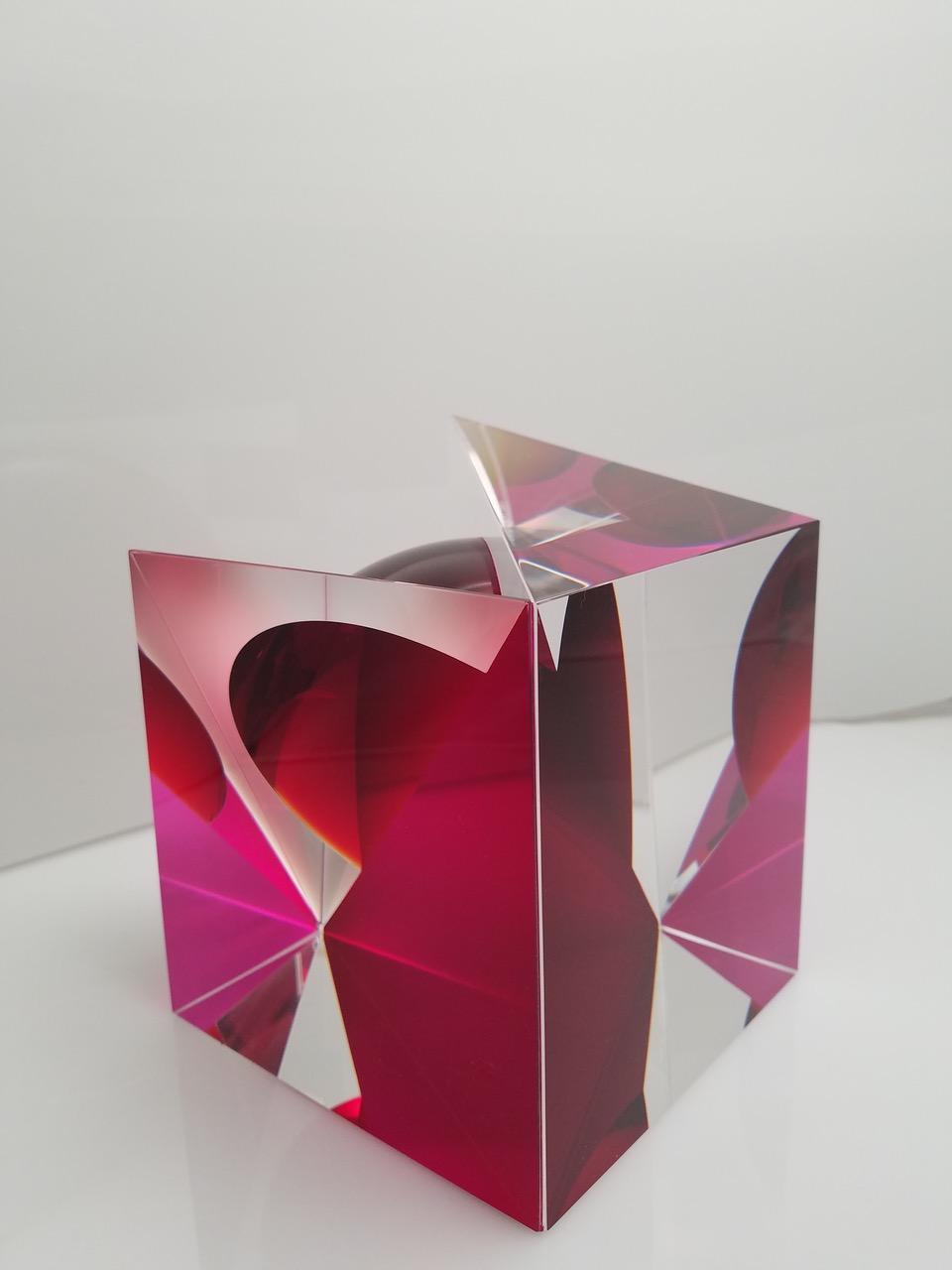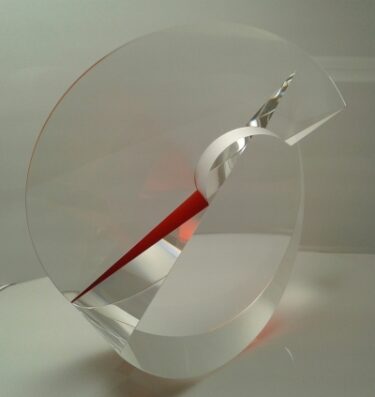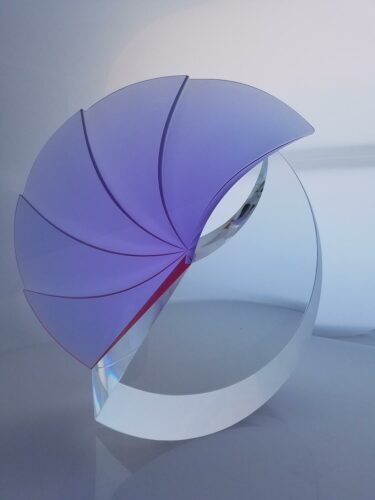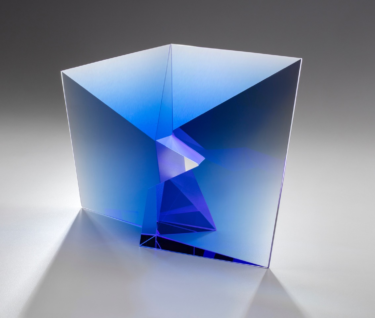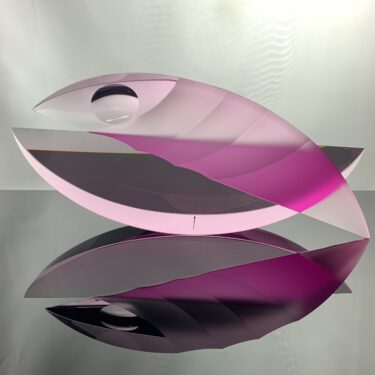Description
Martin Rosol came to the United States in 1988 to pursue his career as
a sculptor, a path unavailable to him in Czechoslovakia before Vaclav Havel and the Velvet Revolution transformed the country.
Rosol, like many Czech glassworkers, learned his trade in a company school set up to train craftsmen to execute limited edition designs for art
glass manufacturers. Though the arrangement provided employment for many, it did not provide young artists with the degree required by the old regime to sell art. So Rosol, who had been designing and making sculptures while working in a glass factory, shipped his work out of the country. Before long, his sculptures were being exhibited in Europe and United States, and in 1981 he was awarded the Bavarian State Prize for Glass Sculpture in Munich. In 1986 he left Czechoslovakia for Austria and two years later came to the United States.
All of Rosol’s sculptures are made with several pieces precisely cut from blocks of crystal and constructed in architectural form after selected surfaces have been sandblasted. The range of translucence and the varied reflective surfaces, the clarity of crystal, and the icy gloss of sand-textured glass all create enclosed spaces within the polished structures. With their architectural forms designed to receive and contain illumination, they are indeed monuments to the light.

